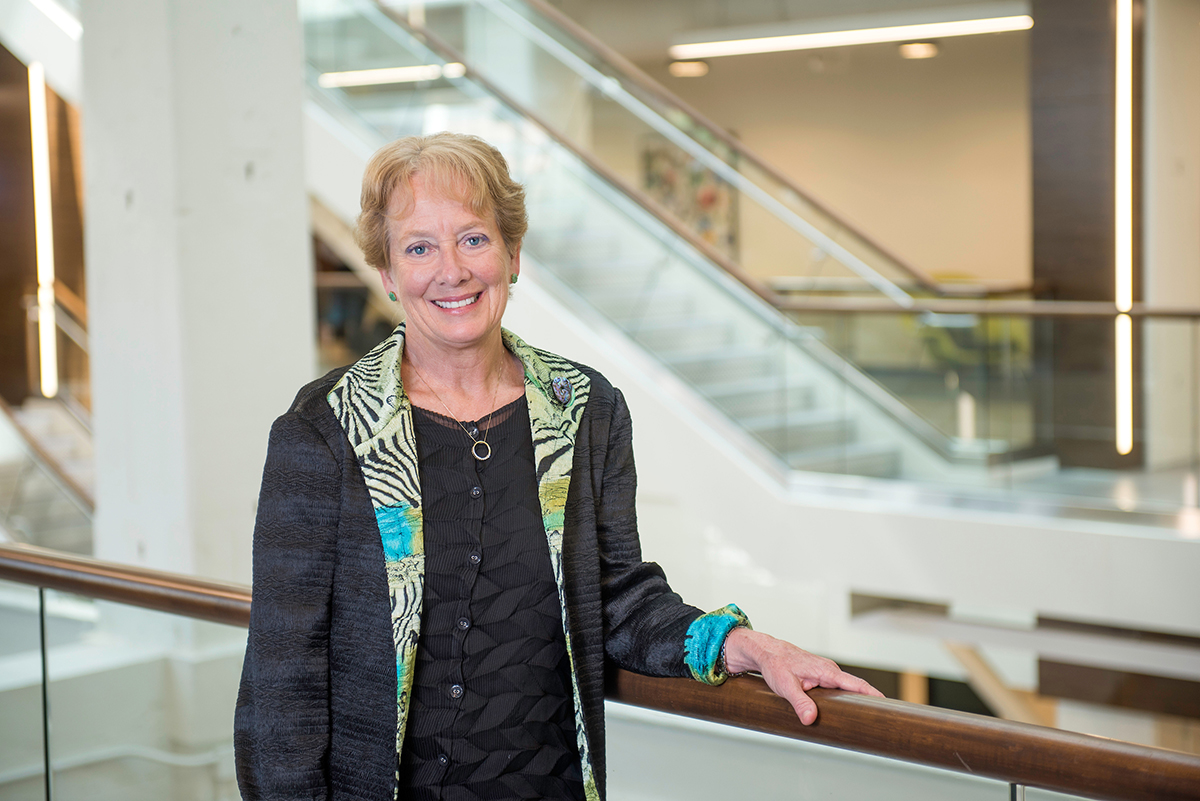
Dear colleagues,
Recently, you may have received several mailings from Wake Forest School of Medicine describing an evolving structure that places medical research and education at the center — the nucleus — of our learning health system. We are excited about all the ways we can translate what we learn into what we do, and that’s why I’m reaching out today.
I wanted to share some of the amazing contributions Wake Forest School of Medicine is making to quickly translate research into improved outcomes for our patients.
- Our leadership of the NIH-supported Systolic Blood Pressure Intervention Trial (SPRINT) has helped to redefine the healthy blood pressure goal. By implementing better measurement protocols gleaned from this research directly into our healthcare system and its EHR system, some of our clinics have already seen a dramatic improvement in the percentage of patients who have their blood pressure under control, resulting in lower risk for dementia, heart attack, heart failure, stroke and death.
- With help from our Center for Healthcare Innovation, we’re making ordering a cancer screening test simple. Our researchers developed a specially designed iPad app called mPATH, with which patients could order a colon cancer screening test while waiting for their doctor. In a randomized clinical trial, the app doubled the proportion of patients who underwent colon cancer screenings.
- Researchers and clinicians at our J. Paul Sticht Center on Healthy Aging and Alzheimer’s Prevention are collaborating on a measure that integrates 60 different EHR criteria together to indicate a patient’s health frailty. This electronic frailty index (eFI) helps identify those patients at higher risk and delivers patient education protocols and home care plans aimed at improving the safety of surgery, cardiac care and hospitalization before they occur.
- Through our Center for Experiential and Applied Learning (CEAL), our medical school faculty drew on more than 40 years of ultrasound experience to create an immersive, advanced curriculum focused on point of care ultrasound (POCUS). But we didn’t stop there. This unique training is now used within our Wake Forest family specifically aimed at community hospitals to provide ultrasound guided IV for nursing staff, PAs and APPs. In the last year, we hosted over 148 internal education events that served 1,721 healthcare professionals.
This is an invigorating time of innovation and evolution for Wake Forest School of Medicine as we consider new models for educating the next generation of students and truly preparing lifelong learners and innovators.
As medical leaders and educators, we all have an incredible opportunity to touch the future and improve lives. I’m proud of our many successes at Wake Forest School of Medicine and invite you to visit our About page to learn more.
I’m always eager to learn about your organization and hope you’ll share an update in turn.

Julie A. Freischlag, MD, FACS, FRCS, ED (Hon), DFSVS
Chief Executive Officer, Wake Forest Baptist Medical Center
Dean, Wake Forest School of Medicine

